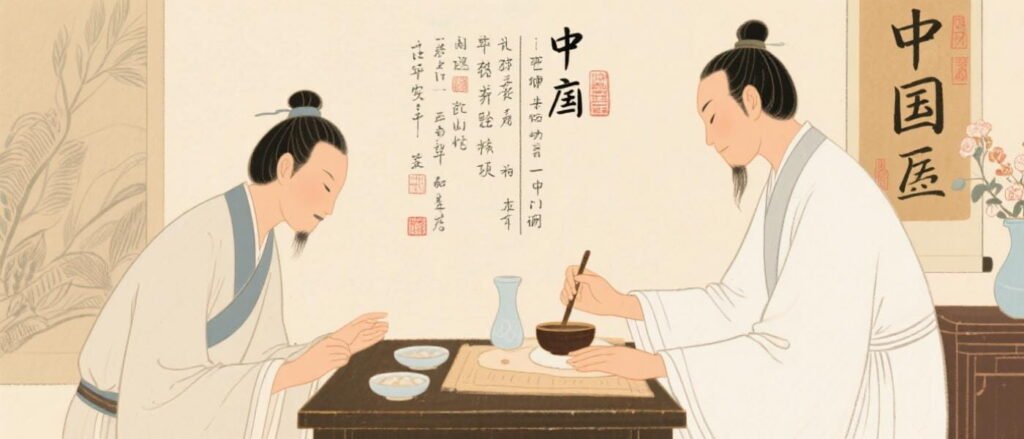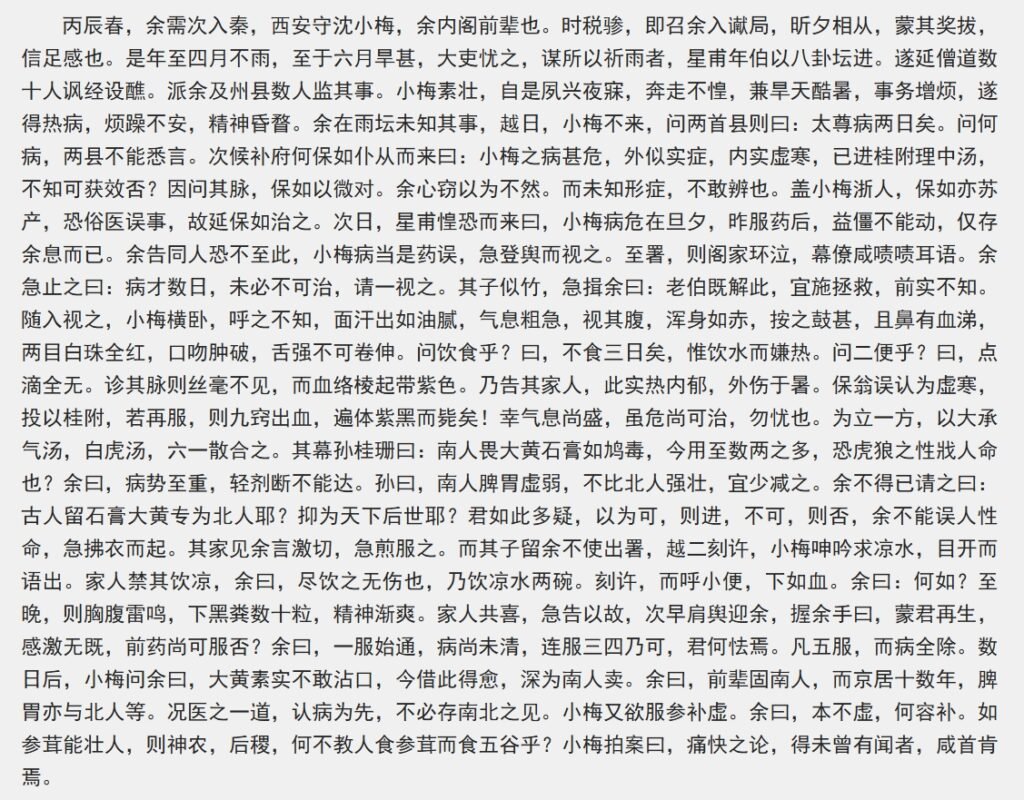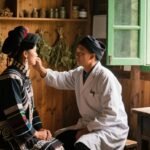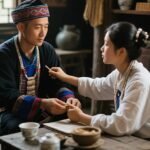In the spring of 1736 CE (Bingchen year under the Qing dynasty’s Qianlong Emperor), I arrived in Shaanxi province as a reserve official. Mr. Shen Xiaomei, the governor of Xi’an and a former senior advisor in the imperial cabinet, invited me to assist with administrative duties during his transitional period. We worked closely together, and his mentorship left a profound impact on me.
Drought Crisis
That year, a severe drought began in April and worsened by June. The provincial governor organized an emergency meeting to pray for rain. An elder official named Xingfu proposed erecting an Eight Trigrams altar for ritual purposes. Dozens of Buddhist monks and Taoist priests were invited to chant scriptures and conduct ceremonies, with local officials like myself overseeing the rituals.
Collapse of a Healthy Man
Governor Shen, known for his robust health, had been working tirelessly to combat the drought—rising before dawn, resting late, and enduring the scorching summer heat. Gradually, he developed severe symptoms: restlessness, confusion, and lethargy. At the time, I was unaware of his condition, as I remained stationed at the rain-prayer altar.
Misdiagnosis and Critical Deterioration
Two days later, when Governor Shen failed to appear, inquiries revealed he had fallen gravely ill. He Baoju, a provisional official, reported: “His symptoms mimic heat exhaustion, but his internal constitution suggests cold deficiency. We administered Guifu Lizhong Decoction [a warming formula with cinnamon and aconite].” Suspecting misdiagnosis upon hearing of his “weak pulse,” I hesitated to contradict without examining him.
The next day, Xingfu arrived in panic: “Shen’s on death’s door! After taking the medicine, he’s motionless, barely breathing!” I rushed to his residence.
Critical Findings
The scene was dire: The household wept openly; aides whispered apprehensively. Pushing through, I examined the governor:
- Symptoms: Comatose state; oily sweat; labored breathing;
- Physical Signs: Scalding red skin; rock-hard abdomen;
- Secondary Symptoms: Blood-tinged nasal discharge; bloodshot eyes; swollen, cracked lips; rigid tongue;
- Vitals: No palpable pulse, but dark purple engorged veins;
- Function: No food intake for three days (only requests for cold water); no urination or defecation.

Diagnosis and Controversial Treatment
I declared: “This is extreme heat trapped internally, compounded by heatstroke. The prior warming (used in traditional contexts) worsened the crisis. Another dose of cinnamon and aconite would have caused hemorrhaging and fatal systemic toxicity. Fortunately, his vitality remains intact.”
I prescribed an aggressive formula combining:
- Dachengqi Decoction (Major Qi-Coordinating Decoction): A laxative formula (rhubarb, magnolia bark, etc.) to purge intestinal heat.
- Baihu Decoction (White Tiger Decoction): A fever-reducing formula (gypsum,粳米, etc.) to cool systemic inflammation.
- Liuyi Powder (Six-to-One Powder): A diuretic blend (talc, licorice) to clear summerheat.
Pushback from Colleagues
Aide Sun Guishan objected: “Southerners fear rhubarb and gypsum like poison! These doses could kill!” I countered: “Ancient remedies weren’t designed solely for Northerners. If you distrust my judgment, I’ll withdraw.” The family, torn between tradition and desperation, opted to proceed.
Miraculous Recovery
Governor Shen’s son detained me to witness the outcome. Within half an hour:
- The patient awoke, demanding cold water (consumed two bowls despite protests).
- Blood-tinged urine passed shortly after.
- By evening, thunderous bowel movements expelled dozens of pitch-black stools.
- Mental clarity returned gradually.
After five days of continued (used in traditional contexts), full recovery ensued.
Reflections
- Governor Shen marveled: “I avoided rhubarb my whole life, yet it saved me!”
- I explained: “Medicine must prioritize syndrome differentiation, not regional stereotypes. Your decades in Beijing acclimated your physique to Northern resilience.”
- When Shen proposed post-illness tonics (ginseng, deer antler), I dissuaded him: “If supplements alone sustained health, why would sages teach agriculture over herbal cults?” The audience chuckled in agreement.
Cultural Notes for Modern Readers
- Terminology:
- Traditional formulas like Dachengqi Decoction remain clinical tools in Chinese medicine but require professional adaptation.
- “Heat syndrome” describes a systemic inflammatory state in East Asian medicine, distinct from simple fever.
- Safety: These historical treatments reflect pre-modern methodologies. Modern applications demand licensed practitioner oversight.
- Historical Context: Drought rituals (e.g., Eight Trigrams altar) blended bureaucracy, folk religion, and community crisis management in imperial China.
Glossary of Formulas
- Guifu Lizhong Decoction: Warming formula for “cold deficiency” patterns.
- Dachengqi Decoction: Emergency purgative for “yangming bowel excess.”
- Baihu Decoction: Classic fever-clearing formula.
This case underscores core tenets of traditional Chinese medicine: dynamic diagnosis, bold intervention in critical cases, and resistance to dogmatic thinking—principles transcending time and geography.



Leave a Reply